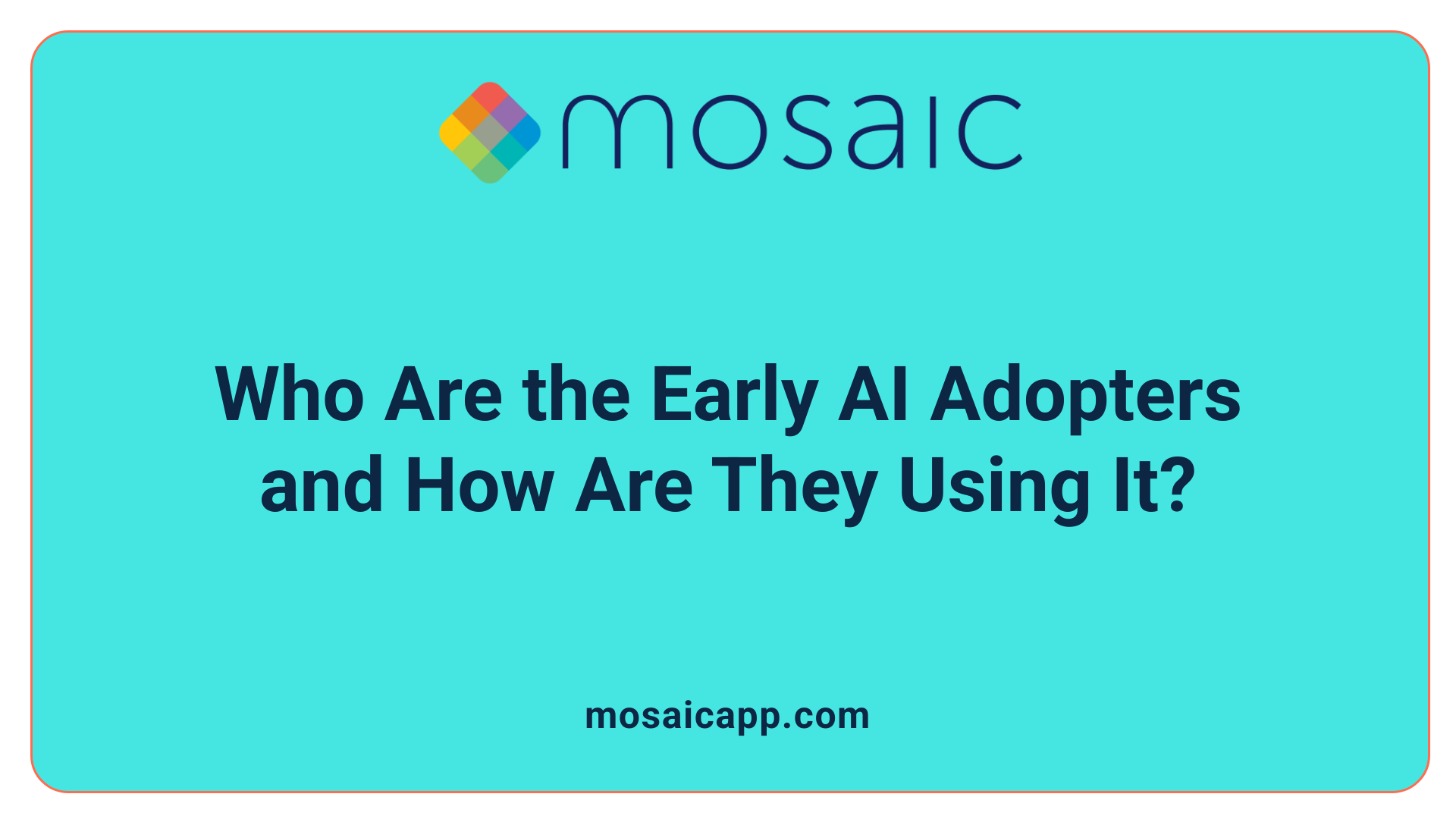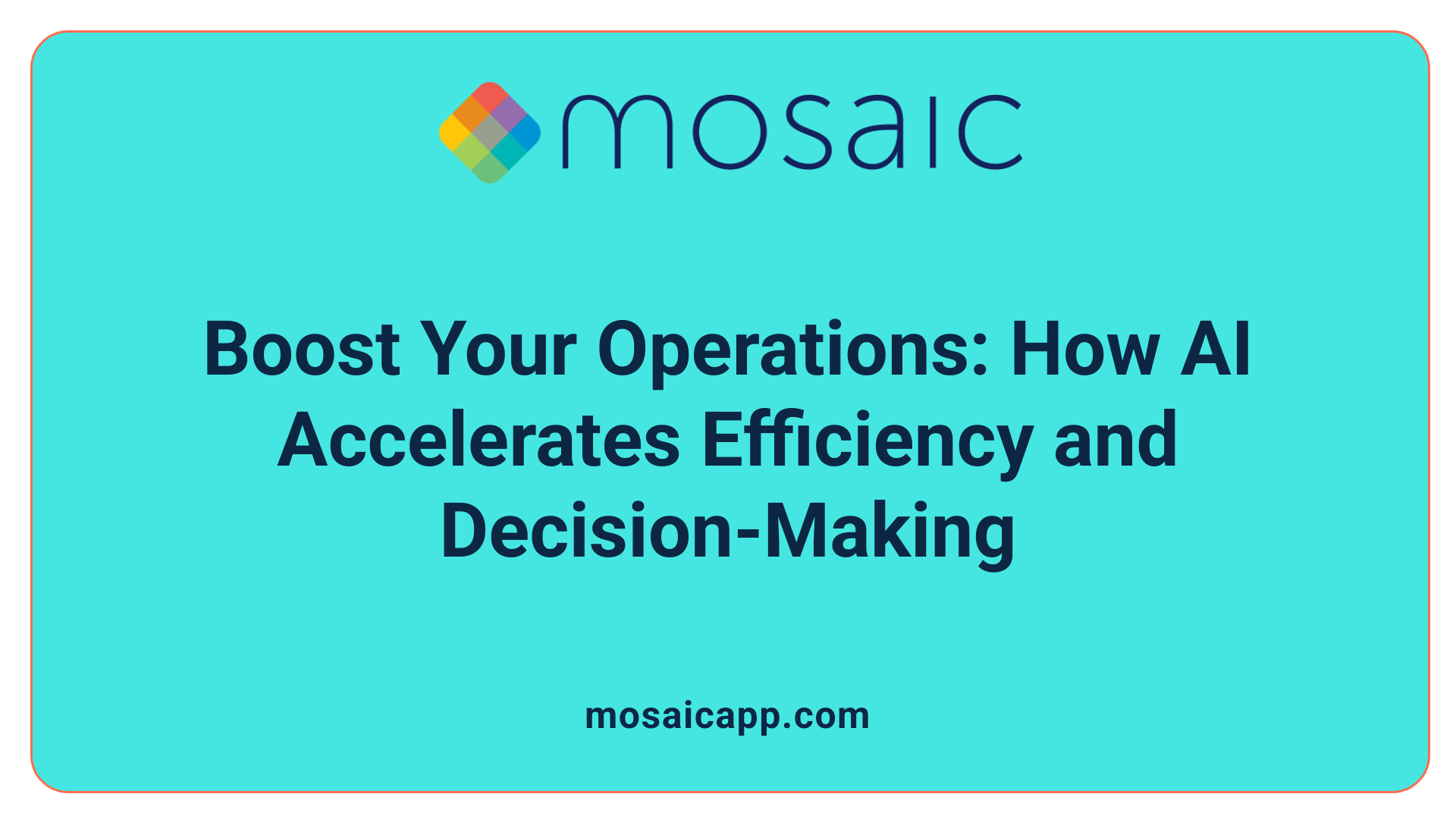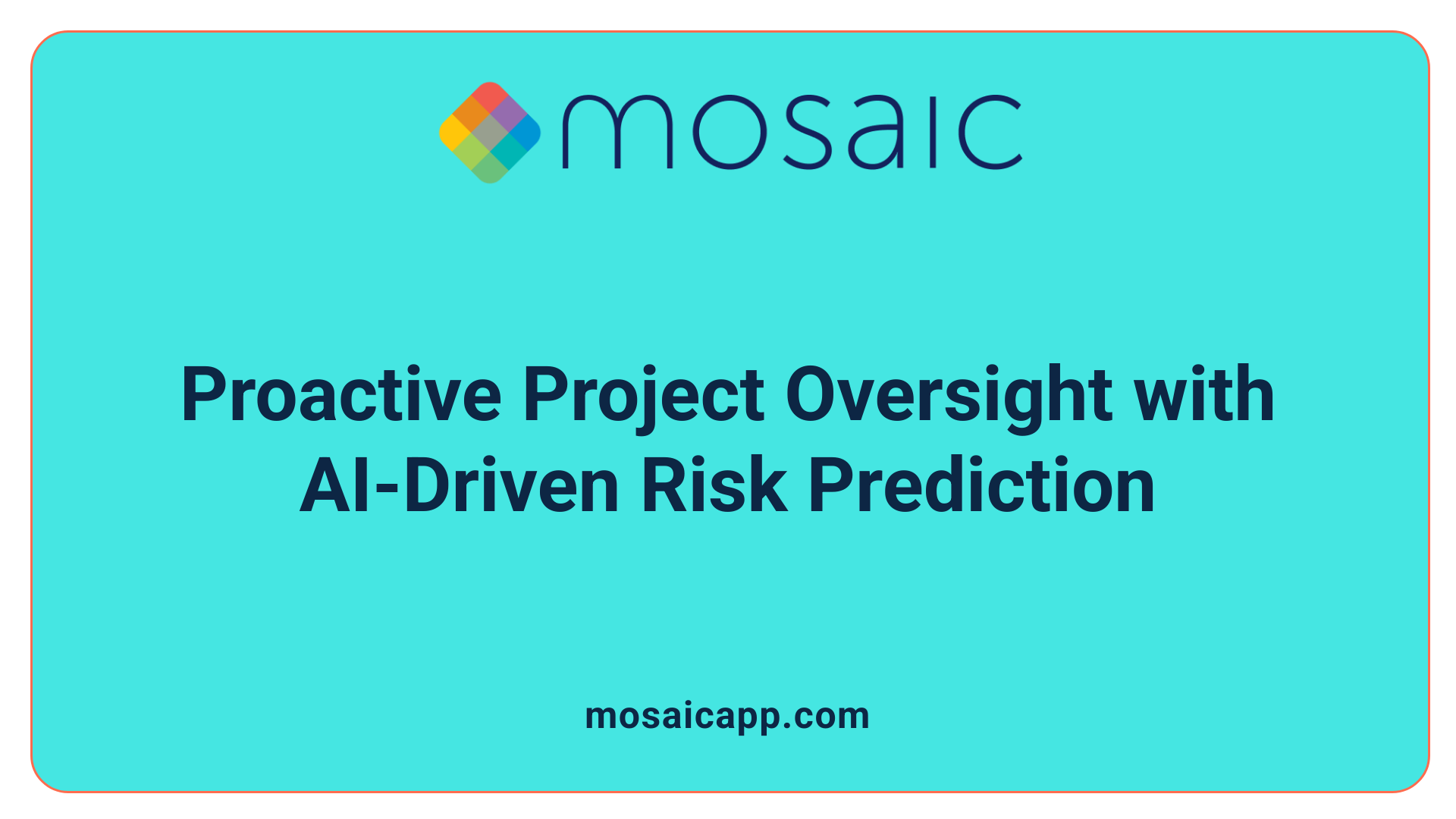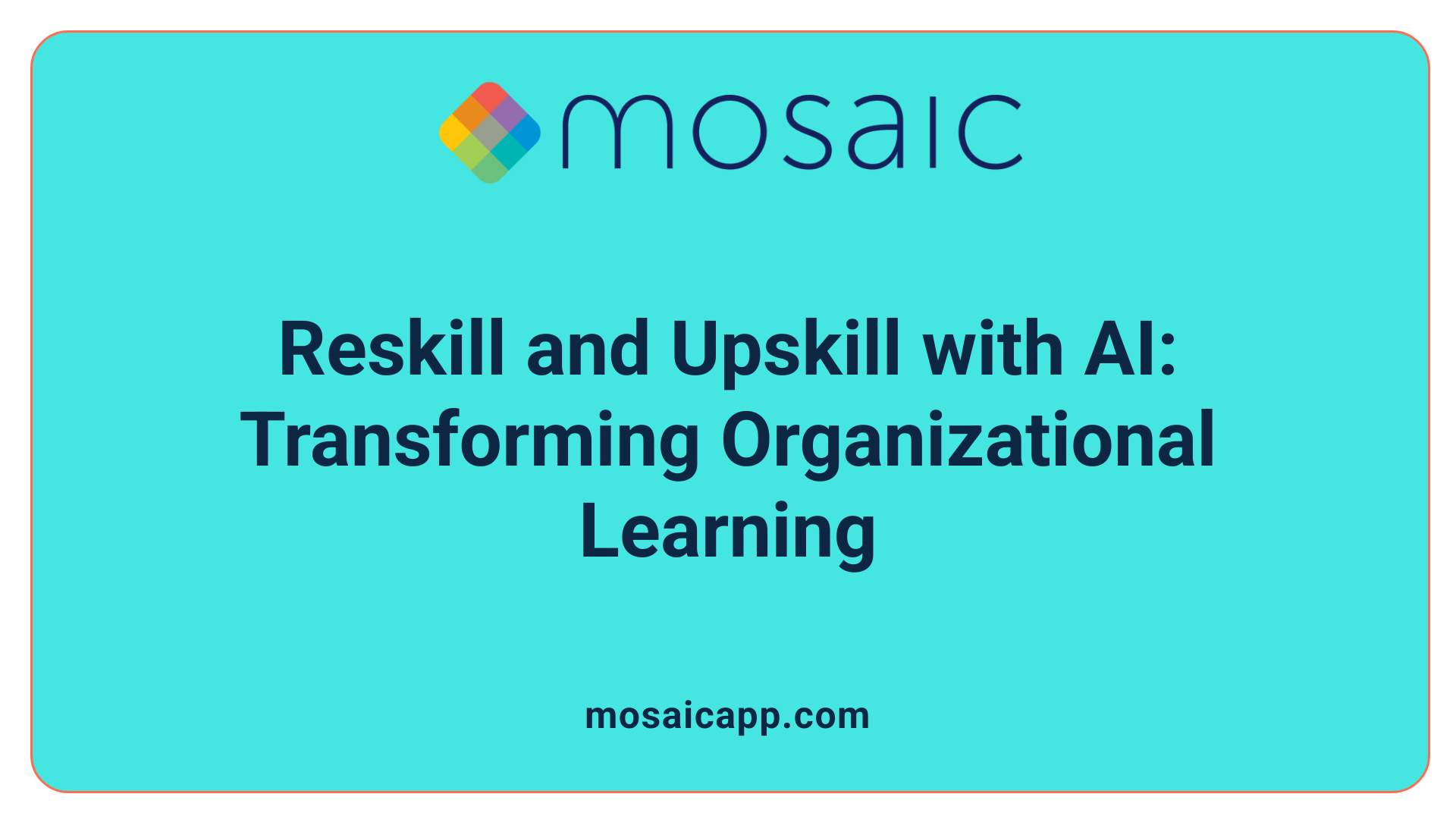Transformative Change Through AI
The landscape of resource management is evolving rapidly with the integration of artificial intelligence (AI). Despite a significant portion of organizations still operating manually, early adopters are harnessing AI to streamline workflows, enhance decision-making, and predict future needs. This article explores how AI is shaping the future, transforming methodologies, and addressing ethical considerations to create smarter, faster, and more efficient resource management systems.
The Current State and Adoption of AI in Resource Management

How widely is AI adopted in resource management?
Recent surveys reveal that a staggering 90% of resource managers have not yet integrated AI into their workflows. While nearly half of organizing teams are considering AI adoption, only 10% have successfully implemented it. This gap highlights the cautious but growing interest in harnessing AI’s potential to enhance resource strategies.
What are early adopters using AI for?
Organizations that have begun to implement AI are leveraging its capabilities for critical operational tasks. These early users focus on resource allocation, workflow automation, and predictive analytics. By automating manual processes, matching skills to tasks more accurately, and forecasting future needs, they are able to streamline operations significantly.
What benefits do organizations observe from initial AI adoption?
Early benefits are notable and include faster decision-making and improved resource utilization. For example, companies transitioning from Excel-based scheduling to AI-powered systems have reported eliminating double bookings, better matching resources to projects, and gaining insights through automated data consolidation from various tools like project management systems and HR platforms.
How is AI changing the strategic approach?
The future points toward a shift from reactive staffing cycles to more proactive, strategic planning. AI’s predictive analytics and automatic task assignments enable organizations to anticipate needs early, identify skills gaps, and prevent conflicts proactively. Some organizations, including top accounting firms, noticed improvements within just two months of AI adoption, demonstrating how quickly these tools can accelerate maturity—from manual to strategic resource management.
What should organizations consider when choosing AI tools?
Effective AI software should feature intelligent skills matching, seamless integration capabilities, transparency, security, and scalability. These features are essential for ensuring reliable and sustainable resource management practices.
How does AI influence knowledge management and what are its ethical considerations?
Beyond resource management, AI is reshaping knowledge management by automating content extraction, tagging, and summarization through advanced models like large language models (LLMs) and retrieval augmented generation (RAG). These tools improve content discoverability and reduce manual effort. However, ethical considerations around transparency, biases, and data privacy are vital. Organizations are encouraged to establish governance structures that promote responsible AI use while enhancing decision-making and operational responsiveness.
Enhancing Efficiency and Speed with AI Technologies

How does AI enhance efficiency, speed, and intelligence in resource management systems?
AI plays a transformative role in resource management by automating manual tasks, enabling organizations to operate more quickly and accurately. Tasks that previously required significant human effort—such as scheduling, resource allocation, and tracking—are now handled automatically by intelligent systems. This automation reduces errors, saves time, and allows resource managers to focus on strategic decisions.
Real-time data processing and advanced analytics give organizations the ability to forecast future resource demands more precisely. AI models analyze historical data combined with current information to identify patterns and predict needs with high accuracy. This predictive capability helps organizations allocate resources proactively, avoiding shortages or over-allocation.
Tools powered by AI also optimize complex decision-making processes such as skill matching and route planning. For example, AI algorithms can automatically assign personnel to projects based on their capabilities, availability, and project requirements. This ensures that resources are utilized efficiently and can adapt swiftly to changing circumstances.
Furthermore, AI systems continuously learn from new data, refining their predictions and recommendations over time. This adaptive learning enhances the intelligence of resource management systems, making them not only faster but smarter. As a result, organizations experience accelerated project delivery, reduced waste, and better overall productivity.
In summary, AI enhances operational efficiency, enables faster decision cycles, and injects greater intelligence into resource planning and allocation, supporting organizations in becoming more agile and resilient in today’s dynamic environment.
Proactive Project and Risk Management Empowered by AI

How does AI impact project management, risk prediction, and resource allocation?
AI has a profound effect on how organizations manage projects, especially in predicting risks and allocating resources. By harnessing advanced algorithms, AI tools can analyze historical data and real-time information to forecast potential project outcomes. These predictive analytics enable managers to identify delays, resource shortages, or conflicts early, allowing them to take preemptive actions.
Automating routine tasks such as scheduling, progress reports, and status updates, AI frees project teams from manual, time-consuming work. This automation not only increases efficiency but also reduces human error. AI-driven systems facilitate seamless communication through chatbots and natural language interfaces, providing stakeholders with instant updates and insights.
Resource allocation benefits significantly from AI’s ability to match skills automatically, forecast future resourcing needs, and suggest optimal distributions of personnel and assets. Adaptive scheduling dynamically adjusts plans based on new data, improving responsiveness and project agility. These enhancements lead to better delivery metrics, higher stakeholder transparency, and the ability to pivot quickly when unexpected challenges arise.
Despite these advantages, human oversight remains critical. Strategic decisions, ethical considerations, and security issues require experienced judgment. AI is a powerful tool to support project management, but not a complete substitute for human expertise.
Transforming Learning and Skill Development with AI

How is AI influencing the evolution of methodologies for learning and skill development in organizational resource management?
AI is fundamentally changing how organizations approach learning and skill development by making it more personalized, adaptive, and efficient. Traditional training methods often follow a fixed curriculum, but AI enables customized experiences tailored to each individual's roles, performance levels, and development objectives.
Generative AI and intelligent tutoring systems are at the forefront of this change. They provide real-time feedback, promote self-reflection, and generate relevant content dynamically. This not only improves engagement but also helps learners retain knowledge better while reducing overall training costs and time.
AI-driven platforms support continuous skill enhancement by proactively identifying gaps through predictive analytics. These systems can forecast future reskilling needs based on organizational trends and individual performance data, enabling preemptive learning interventions.
Furthermore, AI fosters collaborative learning environments that focus on developing soft skills like problem framing, creativity, and teamwork. It simplifies administrative tasks associated with training, such as tracking progress and managing resources, freeing up valuable time for more strategic initiatives.
Inclusion is also enhanced through AI's ability to support multiple formats and languages, making learning accessible to a diverse workforce. Leadership development programs and organizational change initiatives benefit as well, with AI providing insights into learning progression and engagement.
Overall, the integration of AI accelerates workforce reskilling initiatives, making organizations more agile and responsive. It enriches experiential learning and operational training, leading to better talent retention, improved performance, and a more adaptable organizational culture.
This evolution is encapsulated in solutions that combine content personalization, predictive analytics, and AI-supported collaboration to redefine how organizations nurture their most valuable resource—their people.
| Aspect | Impact | Example |
|---|---|---|
| Personalized training | Tailors learning paths to individual needs, boosting engagement and retention | Adaptive learning platforms |
| Predictive skill gap analysis | Foresees future training needs, enabling preemptive efforts | Reskilling trend forecasts |
| Support for continuous learning | Encourages ongoing skill development, fostering innovation | Microlearning modules |
| Administrative efficiency | Automates content management, tracking, and assessment for smoother operations | Automated progress dashboards |
| Inclusive learning | Supports multiple languages and formats, ensuring accessibility | Multilingual AI tools |
AI’s role in transforming organizational learning emphasizes a strategic shift toward proactive, personalized, and efficient development processes, ultimately fostering a more skilled and adaptable workforce.
Technological Innovations Shaping Future Resource Management
The landscape of resource management is rapidly evolving, driven by a range of advanced technological innovations. These tools and systems are making processes smarter, more efficient, and more sustainable.
One major development is the increasing use of AI-powered analytics combined with digital twins. Digital twins are virtual replicas of physical assets or processes, allowing organizations to monitor real-time data, run simulations, and predict future outcomes. This helps managers anticipate issues before they occur and make data-driven decisions to improve resource utilization.
The Internet of Things (IoT) and smart sensors are also playing a crucial role. These devices continuously gather detailed information on resource consumption, environmental conditions, and equipment performance. Such data enables precise tracking, which leads to optimizing operations, reducing waste, and conserving energy.
Blockchain technology offers enhanced transparency and accountability within supply chains. By recording transactions securely and immutably, blockchain ensures responsible sourcing, reduces fraud, and improves traceability. This not only supports sustainable practices but also fosters trust among stakeholders.
Green technologies are transforming resource management with innovative solutions like biodegradable plastics, biofuels, and 3D printing. These advancements help cut down waste and environmental impact, moving industries toward circular economies. Additionally, managing renewable energy through smart grids leverages AI and IoT to balance demand, optimize production, and reduce reliance on fossil fuels.
All these innovations collectively are changing how resources are monitored, allocated, and preserved. They enable organizations to shift from reactive handling to proactive and strategic planning, ensuring sustainability and operational excellence.
| Technology | Application | Impact |
|---|---|---|
| AI-powered analytics | Predictive insights, decision-making | Faster, data-driven planning; optimized resource use |
| Digital twins | Real-time monitoring, simulation | Anticipate issues, improve efficiency |
| IoT and smart sensors | Tracking, environmental data | Detailed monitoring, waste reduction |
| Blockchain | Supply chain transparency | Responsible sourcing, increased trust |
| Green tech innovations | Biodegradable plastics, biofuels | Reduced waste, environmental sustainability |
| Smart grids | Renewable energy, demand management | Balanced energy use, reduced fossil fuel dependence |
These technological shifts are setting a new standard for resource management, making it smarter, more sustainable, and aligned with global environmental goals.
Future Trends and Ethical Considerations in AI-Driven Resource Management
What are the future trends and advancements in AI-driven resource management?
The future of AI in resource management is set to become more dynamic and sophisticated. Expect increased automation that streamlines routine tasks, freeing human managers to focus on strategic planning and complex decision-making.
Personalized experiences for resource allocation will become more prevalent, with AI systems learning individual skills and preferences to optimize team formations and project assignments.
Advanced predictive analytics will play a key role, forecasting workforce needs and adjusting resources proactively rather than reactively. Integration with IoT devices will enable real-time data collection and adjustments across diverse resource areas, like equipment maintenance and supply chain logistics.
In project management, AI will automate time-consuming tasks such as scheduling and prioritization, leading to quicker decision-making and enhanced productivity. These technological leaps will create smarter, more responsive systems that improve efficiency, boost employee engagement, and enhance overall organizational agility.
What are the ethical considerations and challenges associated with AI-driven resource management?
As AI becomes integral to resource management, organizations must navigate several ethical challenges. Ensuring fairness is critical; AI systems should be free from bias to prevent discrimination in hiring, allocation, and other processes.
Data privacy and security also demand attention, given the sensitive nature of the information AI processes. Transparency and explainability of AI decisions are essential to foster trust and accountability among users.
Another concern involves human control—balancing automation with oversight to avoid over-reliance on AI. Ethical issues also include potential job displacement and economic impacts, which require careful management.
Misuse of AI for malicious purposes, like cyberattacks or misinformation, poses societal risks that organizations need to address through responsible use policies.
Building these safeguards involves establishing clear ethical guidelines, practicing responsible development, and maintaining ongoing oversight. Ultimately, ensuring AI benefits society broadly while minimizing harm will be crucial as these technologies evolve.
Harnessing AI for a Resilient Future
The trajectory of resource management is unmistakably moving toward a future defined by intelligence, speed, and automation through AI. As organizations embrace these technological advancements, they must also prioritize ethical governance, transparency, and inclusivity to maximize benefits and mitigate risks. The integration of AI into resource workflows and knowledge management can accelerate organizational agility, drive sustainability, and enhance decision-making processes. With deliberate and responsible development, AI will serve as a transformative force, empowering organizations to navigate complexities with confidence and foresight, ultimately shaping a smarter, faster, and more resilient future in resource management.
References
- 90% of Resource Managers Still Don't Use AI
- How Can AI Accelerate Resource Management Maturity?
- AI and knowledge management: The future of smarter work
- How AI Is Augmenting The Human In Human Resources
- The Future of Work is Personal: How AI is Reshaping ...
- AI in Project Management: Benefits, Use Cases & Future ...
- The role of technological innovation in enhancing resource ...
- How technology drives resource efficiency in business
- The impact of technological innovation on organizational ...
